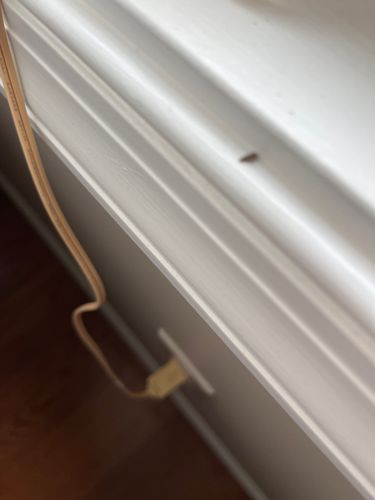Carpet Beetle (likely Varied Carpet Beetle or Black Carpet Beetle)
Scientific Name: Most commonly members of the genera Anthrenus (e.g., Anthrenus verbasci for Varied Carpet Beetle) or Attagenus (e.g., Attagenus unicolor for Black Carpet Beetle). Due to the small image, a specific species cannot be determined.
Order & Family: Order: Coleoptera, Family: Dermestidae
Size: Typically 2-5 mm (0.08-0.2 inches) in length.

Natural Habitat
Indoors, they are commonly found in homes, museums, and warehouses, particularly in areas with undisturbed natural fibers like carpets, rugs, upholstered furniture, clothing in storage, and sometimes in food pantries. Outdoors, adults are found on flowering plants.
Diet & Feeding
Larvae feed on a wide variety of animal products and natural fibers, including wool, silk, feathers, leather, fur, pet hair, dried meat, dead insects, museum specimens, and even some plant-based materials like grains and cereals. Adult beetles feed on flower pollen and nectar found outdoors.
Behavior Patterns
Carpet beetles often remain hidden and can be found in dark, undisturbed areas. They are known for their destructive larval stage, which feeds on natural fibers. The adult beetles are attracted to light and often found near windows in the spring as they try to exit the building to find nectar and pollen outdoors.
Risks & Benefits
Potential risks include significant damage to textiles, clothing, carpets, and stored food products, leading to economic loss. They do not bite humans or transmit diseases. Benefits are minimal in an indoor setting, but outdoors, adult carpet beetles can act as pollinators.
Identified on: 8/13/2025